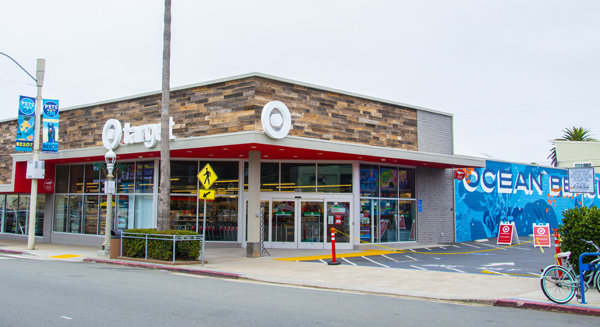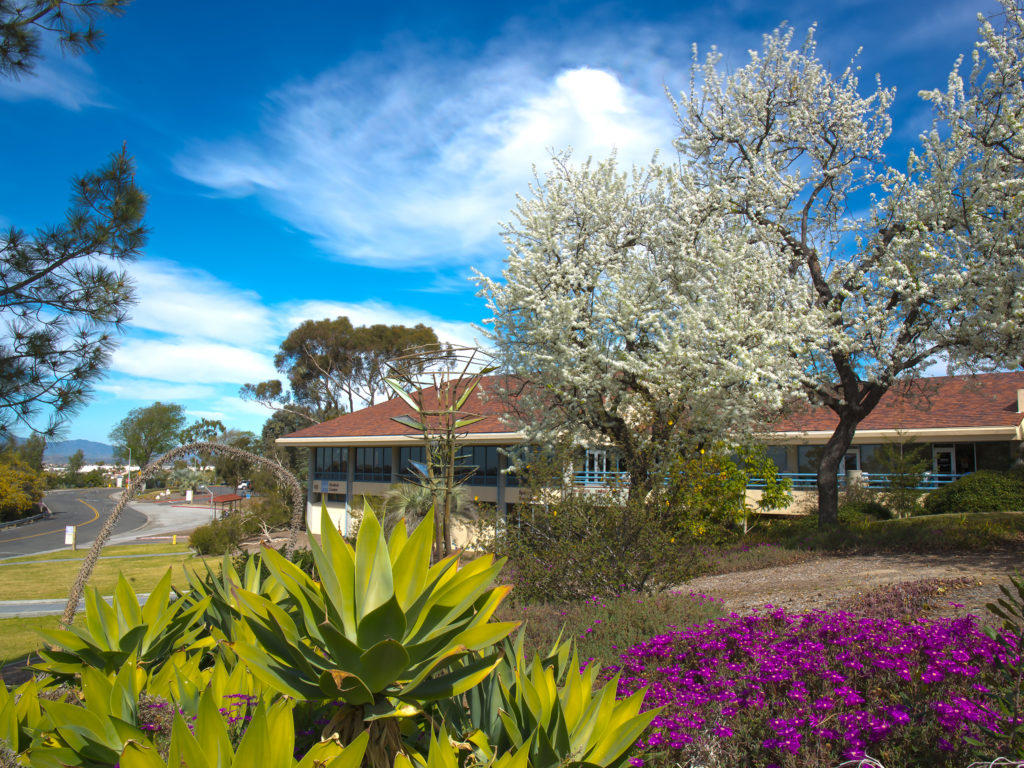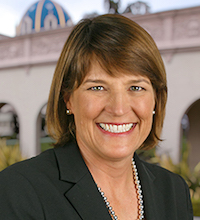Daily Business Report-July 19, 2019
The 2017 Thomas Fire. (Photo: istockphoto/Carsten Schertzer)
Study bolsters case that climate change
is driving many California wildfires
A new study by researchers from Scripps Institution of Oceanography at the University of California San Diego and colleagues combs through the many factors that can promote wildfire, and concludes that in many, though not all, cases, warming climate is the decisive driver.
The study, led by Columbia University’s Lamont-Doherty Earth Observatory, finds in particular that the huge summer forest fires that have raked Northern California recently have a strong connection to arid ground conditions brought on by increasing heat. It suggests that wildfires could grow exponentially in the next 40 years, as temperatures continue to rise.
The study notes that average summer temperatures in the state have risen 1.8 ℃ (3.3 ℉) since 1896, with three-quarters of that increase occurring since the early 1970s. From 1972 to 2018, the area burned annually has shot up fivefold, fueled mainly by a more than eightfold spike in summer forest fires.
“We’ve worked out the causes for trends that have been observed and connected them more clearly to anthropogenic climate change,” said Scripps climate scientist Alexander Gershunov, a co-author of the paper. “There are a lot of reasons why fire activity changes, not all related to climate change, but in this paper we wanted to quantify how much of it is due to climate change.”
The researchers say the summer forest fire increases are driven by a simple mechanism: when air heats up even modestly, it causes more moisture to evaporate from soils and vegetation. Thus fires start more easily, and can spread faster and farther. During the fall, and in non-forested coastal areas, more complicated dynamics are at work and the results are less clear; but the researchers project that climate-driven aridity, related in part to declining fall precipitation, is likely to play a growing role there as well.
______________________

Target opens new small-format store in Ocean Beach
San Diego Community Newspaper Group
Target’s new Ocean Beach store at 4864 Newport Ave. opened to the public Wednesday, and will hold a grand opening on Sunday, July 21.
The 18,000-square-foot store will be the retailer’s third small-format, and 25th store, in the greater San Diego area. Altogether, Target in San Diego employs more than 4,150 people.
Target has prioritized opening small-format stores to serve guests in urban areas, dense suburban neighborhoods and near college campuses – areas where a full-size Target typically wouldn’t fit.
The Ocean Beach store brings a convenient and affordable retail mix offering a curated assortment of food and beverage items, apparel and accessories for adults and kids, health and beauty, and home décor. All items carried in the OB store were based on a survey of the beach community’s needs. Services will include order pickup, which allows guests to order items online and pick them up in store within an hour.
The store’s interior art highlights Ocean Beach’s unique history, including a photo collage from local photographer Steve Rowell, whose work will be on permanent display inside the store. It is easily viewed from the sidewalk outside the store.
The Ocean Beach Target store employs approximately 50 team members.
Target has committed to opening small-format stores, reimagining existing stores, blending the best of digital and physical shopping experiences, offering ease and convenience through digital enhancements, and introducing new, exclusive brands.
With the addition of the Ocean Beach store, Target now operates 98 small-format stores, with a total of 1,853 Target stores nationwide (store count on July 21).
Target plans to open approximately 30 small-format stores a year over the next few years.
______________________

How mammals’ brains evolved to distinguish odors is nothing to sniff at
The world is filled with millions upon millions of distinct smells, but how mammals’ brains evolved to tell them apart is something of a mystery. Now, two neuroscientists from the Salk Institute and UC San Diego have discovered that at least six types of mammals—from mice to cats—distinguish odors in roughly the same way, using circuitry in the brain that’s evolutionarily preserved across species.
“The study yields insights into organizational principles underpinning brain circuitry for olfaction in mammals that may be applied to other parts of the brain and other species,” says Charles Stevens, distinguished professor emeritus in Salk’s Neurobiology Laboratory and coauthor of the research published in the July 18, 2019 issue of Current Biology.
______________________

Newly endowed MiraCosta College scholarship
will support queer and trans people of color
MiraCosta College — which in 2014 became among the first community colleges in the nation to endow a scholarship dedicated to lesbian, gay, bisexual, and transgender students — has unveiled yet another scholarship for the LGBTQIA+ community.
The Queer and Trans People of Color (QTPOC) Scholarship is the fourth endowed scholarship for LGBTQIA+ students and allies at MiraCosta College since the Gay Straight Alliance Club—now known as the Gender Sexuality Alliance Club—raised more than $25,000 to endow a GSA Club Scholarship in 2014.
Eligibility for the $1,000 Queer and Trans People of Color Scholarship includes having already completed at least six units, planning to continue at MiraCosta College or transfer to a four-year college or university, and identifying as a queer or transgender person of color or being an active ally to the QTPOC community.
“The intent of the scholarship is to engender conversations about and more awareness of the distinct needs and experiences of LGBT people of color,” said Steven Deineh, an instruction and student engagement librarian.
______________________
Tri-City Medical Center honored
as Corporate Citizen of the Year
The Oceanside Chamber of Commerce honored Tri-City Medical Center with its Corporate Citizen of the Year Award during its annual Awards and Recognitions Luncheon on July 17. The Corporate Citizen of the Year Award is presented to an organization that has invested extensive financial and human resources into the community and partnered with local nonprofits and civic organizations to address the needs of residents.
“Tri-City Medical Center has consistently been a model of corporate citizenship in Oceanside and our neighboring cities,” said Scott Ashton, CEO of Oceanside Chamber of Commerce. “Their investment of time, talent and treasure helps strengthen the fabric of our community. The work they are doing in our schools and nonprofit organizations, especially in the area of supporting youth, is making a great impact on the well-being of local families.
______________________

Drug overdose deaths rise
Drug-overdose deaths rose in California by 6.6 percent in 2018 to an estimated 5,624, even as they fell nationwide by 5.1 percent, the U.S. Centers for Disease Control and Prevention reported Wednesday.
It was the second year in a row that California had a significant increase in overdose deaths, CalMatters’ Mohamed Al Elew, who crunched the numbers, found. It also was the first time since 2015 that California had the largest number of overdose deaths.
68,557 died from overdoses in 2018 nationwide, preliminary data show.
Fewer than 20,000 overdose deaths were recorded 20 years ago.
Stanford University professor Keith Humphreys, a former adviser at the White House Office of National Drug Control Policy, was quoted in The Washington Post:
“Since the epidemic started, we’ve had a few years where deaths were flat or barely grew year on year, but this is the first time they’ve actually declined. Losing nearly 70,000 people a year of course still means we’re in the midst of a public health disaster, but this is the first real sign of hope we’ve had that we might be turning the corner.”
In Sacramento, legislation to tax opioid manufacturers to combat addiction has stalled in the Assembly. It’s a rare bipartisan tax hike proposal, authored by Democratic Assemblyman Kevin McCarty of Sacramento and Republican Assemblyman James Gallagher, who represents Butte County.
— Dan Morain, CALmatters
______________________
Personnel Announcements
Kelly Capen Douglas appointed CEO of Voices for Children

Kelly Capen Douglas has been appointed president and chief executive officer of Voices for Children (VFC), the local nonprofit organization certified by the court in San Diego and Riverside Counties to recruit and train court-appointed Special Advocate (CASA) volunteers. CASAs serve as consistent, caring adults for children who are in foster care after experiencing abuse or neglect. In addition, CASAs have the opportunity to advocate on behalf of foster children by providing critical information to judges making decisions about the children’s futures.
A native San Diegan, Douglas has spent the last 26 years working in San Diego’s legal and higher education communities. She has served as the general counsel of the University of San Diego since 2005, where she led the university’s legal department and was the chief legal adviser to the board of trustees. Before joining USD, she was a partner at Luce Forward Hamilton & Scripps LLP (now Dentons). Douglas received a law degree from Duke University and a bachelor’s degree in international relations from Stanford University.
An engaged community volunteer, Douglas currently serves as vice chair of the Goodwill Industries of San Diego board of directors, and is active in various leadership roles with the National Association of College and University Attorneys. She was honored by both organizations for her service, receiving the Volunteer of the Year Award from Goodwill and the First Decade Award from NACUA.

